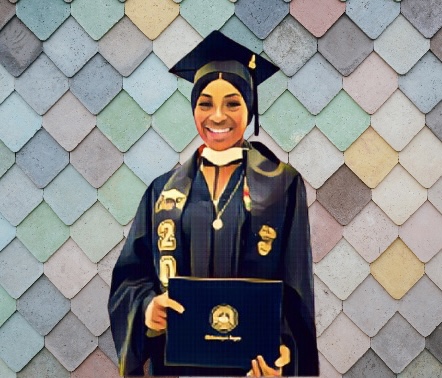KEY POINTS
- Gift Olalusi wins U.S. award for health communication research.
- Her work further reveals accent bias in patient care outcomes.
- She leads pan-African advocacy for inclusive health communication.
Gift Olalusi, a Nigerian doctoral scholar at Wayne State University, Michigan, is drawing international attention for reshaping how the world views health communication.
Her paper, “Unheard Voices: The Hidden Influence of Non-American Accents on Patient Outcomes and Provider Perception in U.S. Healthcare,” earned her the 2025 Westphal Outstanding Student Paper Award from the Iowa Communication Association.
“Effective healthcare doesn’t start with a stethoscope; it starts with communication,” she said, emphasizing how linguistic bias can affect trust and diagnosis in the U.S. healthcare system.
Health communication and the fight against bias
Beyond her academic achievements, Olalusi recently became Head of Operations at the African Centre for Media and Intercultural Dialogue (ACMID), a pan-African think tank that promotes culturally informed media and public health narratives.
She describes her work as a blend of research and advocacy that amplifies marginalized voices, both African and diasporic, in global health decision-making.
Working under Professor Olunifesi Suraj, a UNESCO Consultant and ACMID Executive Director, Olalusi co-authored a paper titled “African Right to Identity as a Right to Development,” published in the Jos Journal of Media and Communication Studies. She later presented the paper at the 2023 Social Practice of Human Rights Conference, expanding her influence in shaping scholarly and policy discussions.
Health communication at the heart of her mission
Born and raised in Nigeria, Olalusi began her academic journey with a degree in mass communication from the University of Lagos. She earned a master’s in communication and a health communication certificate from the University of Dayton before moving to Wayne State for her PhD in health communication.
Her current research also examines how patients with non-American accents, disabilities, or cultural differences navigate stigma and invisibility in medical spaces. “Many patients aren’t just medically underserved; they’re also communicatively invisible,” she said.
Furthermore, her goal is to create communication interventions that bridge empathy gaps between healthcare providers and patients, ultimately improving outcomes worldwide.
During her time in Dayton, she worked on real-world health projects, facilitating community workshops and developing training sessions for medical professionals.
Finally she believes the same models could improve healthcare delivery in Nigeria and across Africa. “In both places, the problems are the same mistrust and stereotypes but the solutions must be local,” she said.



